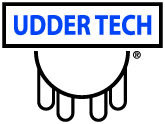Capital Press recently featured dairyman Tim Pedrozo of Orland, California. Pedrozo Dairy & Cheese Company has been producing raw milk cheese for 15 years. As outlined in the article, Pedrozo is concerned with the efforts of some other raw milk proponents to change the laws for selling raw milk.
California legislators recently rejected Assembly Bill 2505, which would have allowed home dairies with three or fewer cows to sell or share excess milk without having to meet the requirements of a commercial dairy.
How did your interview with the newspaper come about?
I wrote a letter, an opinion editorial, about this raw milk movement out in California and sent it out to some different publishers because I wanted to get the information out. I think we need to do something as an industry to be proactive. This – I don’t want to call it a problem – it’s an issue that’s not going to go away and will influence the whole dairy industry more than people want it to.
Have your editorials had similar results in the past?
This would be the second time. I was pretty vocal on another issue back in 2001 and the farm bill, the (tax on) imported dairy products: I don’t support it, I’m not in favor of it. Back then, I was interviewed by a local dairy magazine.
So editorials work, then?
They’re a great forum. More agriculture producers and any type of consumer or whatever, need to … let people know what’s happening. A lot of people don’t know or don’t care; then they change the law and people say, “That’s not what we wanted.”
Were you nervous before this most recent interview, especially given the controversial topic?
A little bit. I’ve had a tiny bit of media training; I had done some stuff in 2001 with the farm bill. So I’m not new to this.
Do you do anything special to prepare?
Not really. I almost forgot they were coming. They showed up on Monday morning and I’m looking around, thinking “Oh man, that’s right, you’re coming.” I went in the house and put on a nicer shirt.

What was the most difficult question you had to answer?
The most difficult is the complexity of this issue. I think this issue is a lot more complex, and nobody is going to be completely happy with the outcome.
Were you satisfied with the piece that they produced?
Yeah, I think the piece was really balanced, and the reporter did his homework. He presented both sides of the issue and put me in the spot where I am: not happy with either side because neither side is really doing anything about the issue. One side is ignoring it and the other side wants to start (allowing) exemptions, unregulated commerce.
What advice would you have for other dairy producers who may be doing interviews about hot-button issues?
They have to have a plan: What is it going to gain? What is the bigger meaning? Like the whole Chipotle thing. Some farmers came out really negative and said we should boycott Chipotle. What are we going to do, how are we going to respond to that?
On these kinds of issues, sometimes the best thing is not to respond. They want us to respond in a negative way. It’s a hard thing for people in agriculture to remember we don’t want to lower ourselves to that sort of response.
That’s the thing about sensationalism: They want to bring us to the lowest common denominator. One thing we always have to do in agriculture is promote all the good we’re doing. PD
PHOTO
Photo by Thinkstock.






